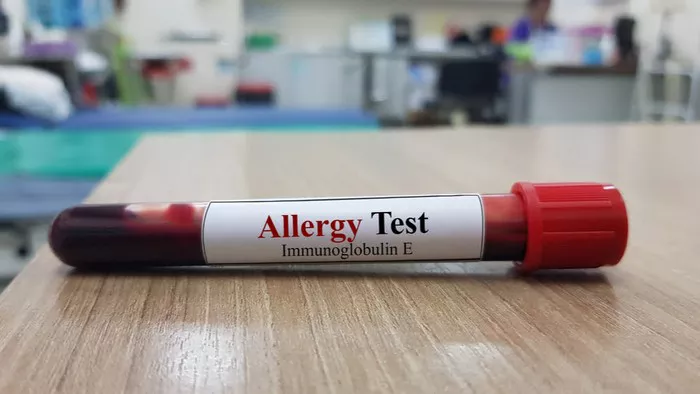Allergies are a widespread health concern affecting millions of individuals globally. They occur when the immune system overreacts to harmless substances, known as allergens, causing a range of symptoms. Common allergens include pollen, dust mites, pet dander, and certain foods. Symptoms can vary from mild, such as sneezing and itching, to severe, including difficulty breathing and anaphylaxis. While conventional treatments like antihistamines and corticosteroids are commonly used to manage allergy symptoms, many individuals seek alternative therapies, including acupuncture and moxibustion. This article explores the effectiveness of acupuncture and moxibustion in treating allergies from a professional perspective.
Understanding Acupuncture and Moxibustion
What Is Acupuncture?
Acupuncture is a key component of Traditional Chinese Medicine (TCM) that involves inserting thin needles into specific points on the body. These points, known as acupuncture points, are believed to correspond to pathways of energy flow, or “Qi” (pronounced “chee”). According to TCM, when the flow of Qi is disrupted, it can lead to illness and various health issues, including allergies. By stimulating these points, acupuncture aims to restore balance, enhance the immune response, and alleviate symptoms associated with allergies.
What Is Moxibustion?
Moxibustion is another TCM practice that often accompanies acupuncture. It involves the burning of a herb called mugwort (Artemisia vulgaris) near or on acupuncture points. The heat generated from moxibustion is believed to enhance the effects of acupuncture, promoting healing and improving circulation. Moxibustion can be performed in two primary ways: direct moxibustion, where a small amount of the herb is placed on the skin and ignited, and indirect moxibustion, where the herb is burned on a stick and held near the acupuncture points.
How Acupuncture and Moxibustion May Help with Allergies
Immune System Modulation
One of the primary ways acupuncture and moxibustion may help with allergies is through their effects on the immune system. Research suggests that these therapies can modulate immune responses. For instance, studies have indicated that acupuncture may decrease the levels of immunoglobulin E (IgE), an antibody that plays a critical role in allergic reactions. By reducing IgE levels, acupuncture may help alleviate allergy symptoms.
Reducing Inflammation
Allergic reactions often involve inflammation, which can lead to symptoms such as swelling, redness, and discomfort. Acupuncture and moxibustion are known for their anti-inflammatory properties. By stimulating specific acupuncture points, these therapies may help reduce inflammation in the body, providing relief from allergy symptoms. This is particularly relevant for conditions like allergic rhinitis, where nasal passages become inflamed due to allergens.
Enhancing Respiratory Function
Many allergies affect the respiratory system, leading to symptoms like nasal congestion, sneezing, and asthma attacks. Acupuncture has been shown to improve respiratory function by promoting relaxation and reducing stress. Stress can exacerbate allergy symptoms, so managing it through acupuncture may lead to better overall respiratory health. Moxibustion, with its warming properties, can also help clear congestion and improve airflow in the respiratory tract.
Addressing Underlying Conditions
In TCM, allergies are often viewed as a manifestation of underlying imbalances in the body. Acupuncture and moxibustion can help address these imbalances by promoting overall health and wellness. For example, practitioners may focus on strengthening the spleen and lung systems, which are thought to play a role in the body’s ability to respond to allergens. By treating the root causes of allergies, these therapies may provide more comprehensive relief.
Scientific Evidence Supporting Acupuncture and Moxibustion for Allergies
Research Findings
Several studies have explored the effectiveness of acupuncture for treating allergic conditions. A systematic review published in the journal Allergy in 2013 found that acupuncture could significantly reduce symptoms of allergic rhinitis compared to sham acupuncture. Participants receiving acupuncture reported improved nasal airflow and reduced sneezing and itching.
Another study published in The Journal of Alternative and Complementary Medicine found that moxibustion, when used in conjunction with acupuncture, provided additional benefits for patients with allergic rhinitis. The combination therapy resulted in greater symptom relief compared to acupuncture alone.
Limitations of Current Research
While the existing research is promising, it is important to note that more rigorous studies are needed to establish the definitive effectiveness of acupuncture and moxibustion for allergies. Many studies have small sample sizes and varying methodologies, which can impact the reliability of the results. Additionally, the placebo effect may play a significant role in perceived symptom relief, making it challenging to assess the true efficacy of these treatments.
Practical Considerations for Patients
Finding a Qualified Practitioner
If you are considering acupuncture and moxibustion for allergy treatment, it is crucial to seek a qualified practitioner. Look for licensed acupuncturists who have received formal training and certification. A qualified practitioner will conduct a thorough assessment of your condition and develop a personalized treatment plan tailored to your specific needs.
What to Expect During Treatment
During an acupuncture session, the practitioner will first conduct an assessment, discussing your medical history and allergy symptoms. They will then insert thin needles into specific acupuncture points, which may cause minimal discomfort. A typical session lasts between 30 to 60 minutes. Moxibustion may be performed during or after acupuncture to enhance the treatment’s effects.
Potential Side Effects
Acupuncture and moxibustion are generally considered safe when performed by trained professionals. However, some individuals may experience mild side effects, such as soreness at the needle insertion sites or temporary fatigue. Serious complications are rare, but it is essential to discuss any concerns with your practitioner before beginning treatment.
Conclusion
Acupuncture and moxibustion offer promising alternative therapies for individuals seeking relief from allergies. While research supports their potential effectiveness in modulating immune responses, reducing inflammation, and enhancing respiratory function, more rigorous studies are needed to confirm these benefits definitively. As with any treatment, individual responses may vary, and it is crucial to consult with a qualified practitioner to determine the best approach for your specific needs. By integrating acupuncture and moxibustion into a comprehensive allergy management plan, individuals may find a holistic path to better health and well-being.
Related Topics:


